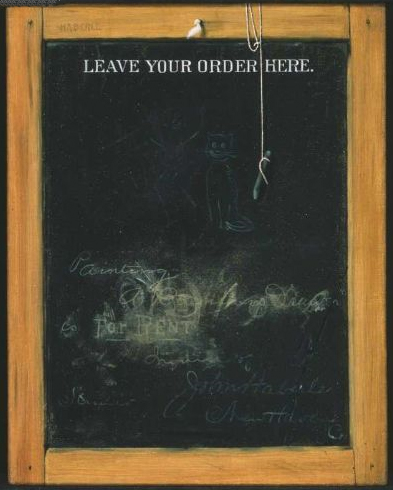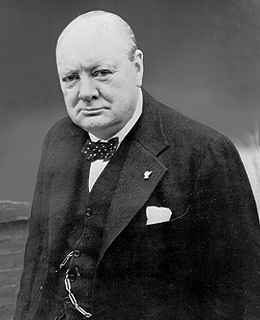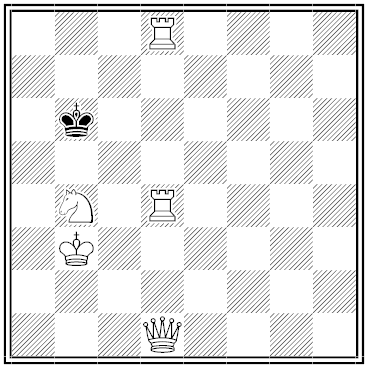
Trompe l’oeil master John Haberle’s 1895 work The Slate induced more than one viewer to reach for the chalk. But the whole image — slate, frame, pencil, string, and erasure — was painted in oils. Haberle intended it to be hung without a separate frame in order to complete the illusion.
Haberle specialized in such playful trickery. “The spectator is very apt to doubt the assertion that the work has been accomplished with brush and oil colors alone until he has been permitted to gaze at the production through a magnifying glass which brings out in bold relief the fact that the statement is indisputable,” wrote the Boston Post of a Haberle exhibition the following year. “[O]ne man who is known beyond the limits of Boston as an art critic was heard to say ‘If I had not seen it through a very powerful microscope, I should have refused to believe it to be a genuine painting without witnessing the artist actually at work on the subject.”




